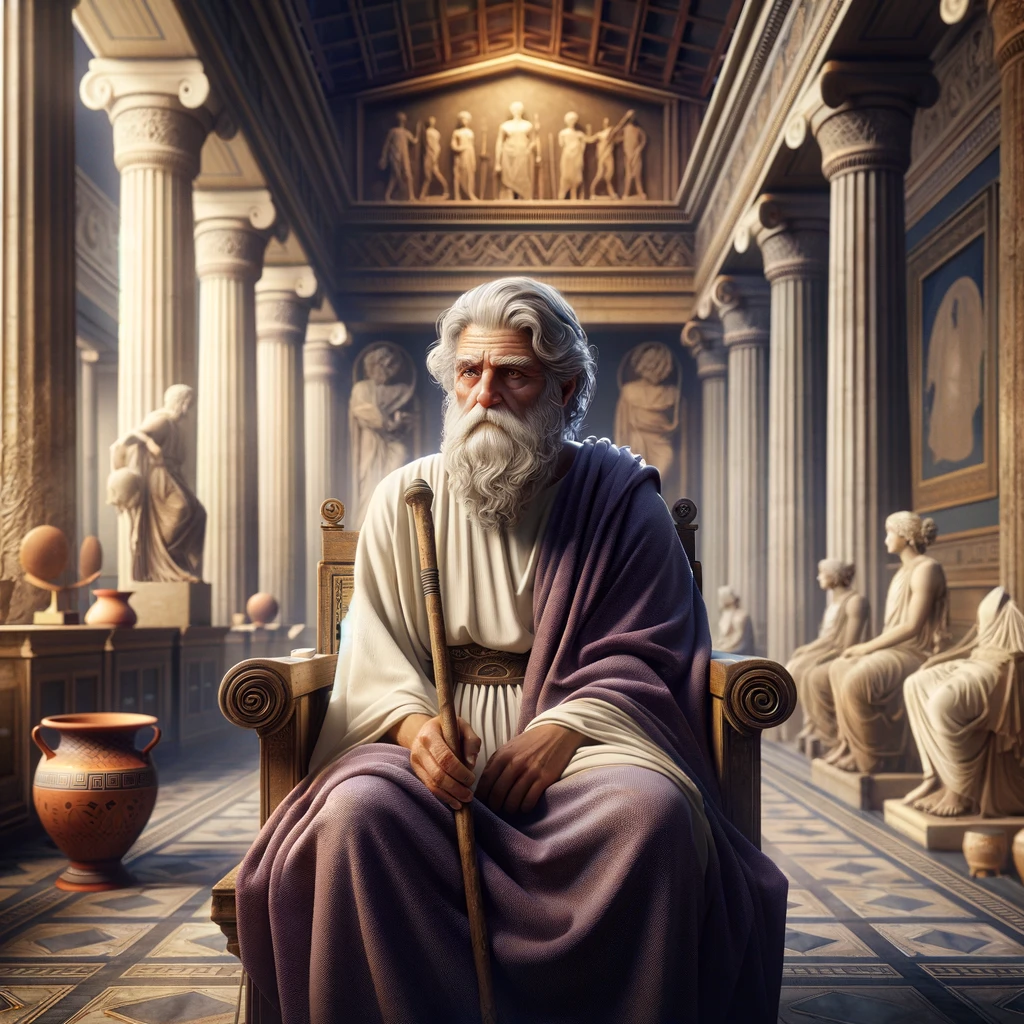
Nestor is a name that resonates with rich historical and mythological significance. It is derived from Greek mythology, where Nestor was known as the wise King of Pylos, celebrated for his sage advice to the Greeks during the Trojan War. In the epic poems of Homer, “The Iliad” and “The Odyssey,” Nestor stands out for his prudence, eloquence, and profound knowledge, often providing crucial counsel to heroes like Achilles and Odysseus.
The figure of Nestor embodies the archetype of the wise elder. His character in mythology highlights the importance of experience and wisdom, traits that were highly valued in ancient Greek culture. Nestor’s role in these stories is not merely as a participant in battles but as a stabilizing influence, offering strategies and solutions that reflect deep understanding and foresight. His advice often steers the Greek heroes towards decisions that balance bravery with wisdom, helping to navigate the complexities of war and leadership.
In “The Iliad,” Nestor is portrayed as an older man, past the prime of his youth yet still respected for his insights and historical knowledge. His speeches are filled with references to his own experiences and the past glories of warrior generations, serving as a bridge between the past and present actions in the narrative. This connection underscores the value of history and tradition within the epic and serves as a reminder of the continuum of human experiences and the lessons they hold.
In “The Odyssey,” Nestor’s character continues to be a source of guidance. When Telemachus, the son of Odysseus, visits him to inquire about his missing father, Nestor provides hospitality and advice, exemplifying the Greek virtue of xenia, or guest-friendship, which was sacred among the gods and men. His interactions with Telemachus highlight his role as a mentor figure, emphasizing the transmission of knowledge and values from one generation to the next.
Beyond mythology, the name Nestor has permeated various cultures and historical periods, often used to denote wisdom and counsel. In literature, characters named Nestor are frequently depicted as advisors or wise elders, drawing directly from the mythological archetype. This usage underscores how deeply embedded the figure of Nestor is in cultural narratives about wisdom and age.
In the modern context, the legacy of Nestor extends beyond literary or historical references. It has influenced naming traditions in various families, especially in cultures that value historical and mythological figures. The name itself symbolizes a connection to a past where wisdom and guidance were pivotal to survival and success.
The significance of Nestor is also apparent in psychological and philosophical discussions, particularly in the context of elder wisdom in societal structures. In many societies, older individuals are often seen as repositories of wisdom, much like Nestor, playing crucial roles in advising younger generations. This cultural archetype can be seen in various traditional societies where elders help mediate conflicts and pass on cultural knowledge and values, ensuring the continuity of their heritage.
Moreover, the story of Nestor encourages a reflection on the nature of advice itself. His counsel in the epics is not merely beneficial for its immediate practicality but also for its deeper moral and ethical implications. This aspect of Nestor’s wisdom invites readers to consider the role of ethics in leadership and the importance of long-term thinking over immediate gains. It poses the question of how leaders can balance courage with prudence, action with reflection, a theme that remains relevant in contemporary leadership discussions.
The enduring appeal of Nestor also speaks to a universal longing for figures who embody integrity and wisdom. In an age where information is abundant yet truth can be elusive, the archetype of the wise elder serves as a beacon for those seeking guidance and insight amid the noise. It reflects a collective aspiration towards not just acquiring knowledge, but deep wisdom that comes with experience and reflection.
In summary, Nestor is not just a character from ancient myths but a symbol of wisdom that transcends time and culture. His story offers insights into the value of experience, the importance of wise counsel, and the timeless quest for ethical leadership. As societies continue to evolve, the lessons from Nestor’s life remain a vital reference point, reminding us of the profound impact that wisdom and guidance can have on both personal and societal levels.
Image depicting “Nestor: The Embodiment of Wisdom and Guidance in Greek Mythology and Beyond.” The scene features a wise and elderly Greek man, representing Nestor, in a grand hall of an ancient Greek palace, surrounded by classical Greek elements that highlight his sage role.